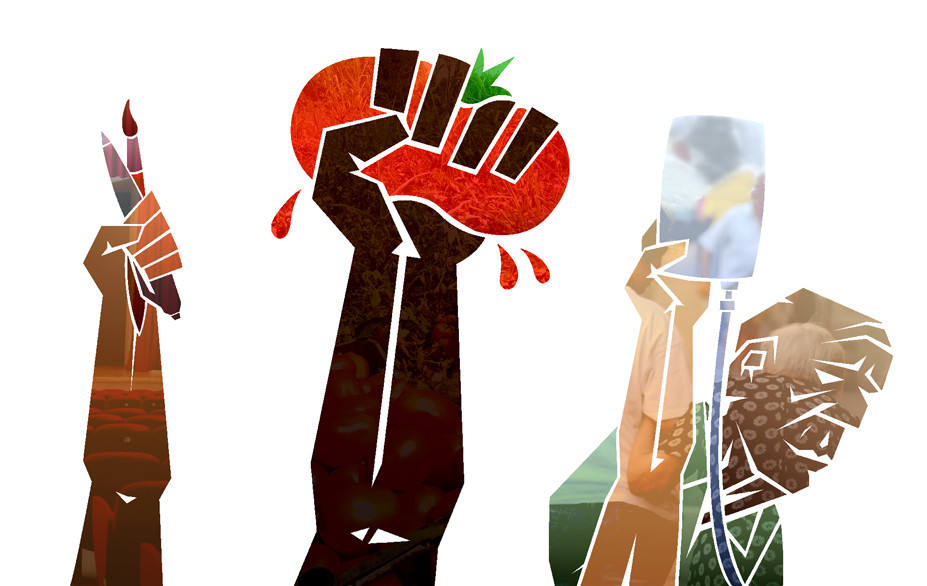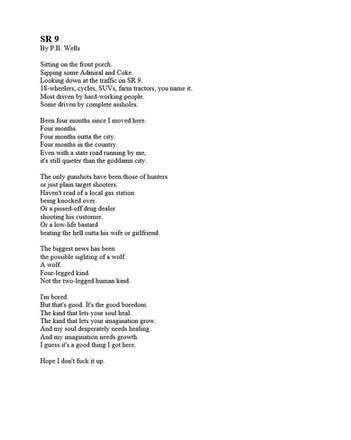HOME | DD
 Mc-Kid — Invisible work
Mc-Kid — Invisible work

#exploitation #laborunion #rights #spettacolo #stati #popolari #invisibili #lavoratori #workersrights #tradeunionist #aboubakar #badanti #filiera #aboubakarsoumahoro #filieracorta #statipopolari #lavoratoriinvisibili #dirittidellavoro #soumahoro #invisibleworkers #maestranzedellospettacolo #lavoratoridellarte #professionistispettacoloecultura #workexploitation #statodiagitazionepermanente
Published: 2020-12-31 07:36:20 +0000 UTC; Views: 989; Favourites: 6; Downloads: 0
Redirect to original
Description
ITA/ENG
Dalla scorsa estate volevo fare qualcosa su una delle conseguenze della crisi economica causata dalla pandemia di COVID-19: quella dell'agricoltura che si è vista privata dei braccianti stagionali. In buona parte migranti o stranieri, generalmente sfruttati all'inverosimile. Lavoratori invisibili di cui si sente parlare solo riguardo all'occasionale tragedia in uno degli accampamenti dove alloggiano o per casi di caporalato particolarmente eclatanti, che tuttavia sono praticamente la regola in quei contesti. Solo nel momento in cui questa manodopera a basso costo è venuta a mancare e il sistema si è inceppato si è sentito parlare di queste persone, solo quando non è stato più possibile ignorarli perché la loro indispensabilità era evidente.
Non è possibile che ogni volta che compriamo verdura al supermercato ci rendiamo complici di queste condizioni di schiavitù favorite dalle grandi filiere che impongono prezzi insostenibilmente bassi. Schiacciando I piccoli produttori e facendo lievitare I prezzi dell'agricoltura alternativa che tenta strade più etiche, come certo biologico, ma diventa un prodotto di nicchia fuori dalla portata delle fasce meno abbienti della popolazione, le stesse più suscettibili allo sfruttamento sul lavoro (discorso analogo vale un po' per ogni settore produttivo).
Così come non è possibile che sia così svalutato il lavoro delle e dei badanti, di chi si prende cura dei nostri anziani. Altro campo che è stato colpito duramente col diffondersi del virus e che privilegia esponenzialmente l'assunzione di stranieri (straniere, più che altro) più vulnerabili e esposti al rischio dell'irregolarità.
Questo disegno è dedicato al lavoro di Stati Popolari iniziato in quel periodo, con cui il sindacalista Aboubakar Soumahoro continua a chiedere una svolta rispetto a queste problematiche come a tutte quelle legate al precariato e non solo.
Mi fa piacere vedere anche iniziative a tutela dei lavoratori di arti e spettacolo, che vivono a loro volta il limbo di una condizione lavorativa priva di qualsiasi tutela. La cosa mi tocca anche personalmente, visto che sono trasversale ai due settori: tiro a campare lavorando part-time in una piccola azienda agricola e sulla comunicazione per il teatro.
For months I wanted to draw something about one of the aspects of the recent COVID-19 crisis here in Italy: the lack of manpower in the fields that hit agriculture during last spring and summer due to the dangers of the pandemic. These day labourers are for the most part migrants or foreigners and are generally exploited beyond belief. Invisible workers who get to be heard of only when there is yet another tragedy in one of the camps where they live or in particularly bad cases of illegal recruitment, which by the way tends to be the rule in those contexts.
Only when that low-cost labour becomes unavailable and the system gets stuck the existence of these people is noticed. Only when ignoring them, the fact that they are indespensable, is not possible anymore.
It's unacceptable that every time we buy vegetables at a supermarket we contribute to the slavery conditions caused by the large scale retail trade which forces unsustainably low prices, squashing small producers and raising the prices of alternative agriculture. Which tries to work more ethically but provides a niche product that cannot be afforded by the lower classes, the same parts of society who are more susceptible to exploitment in the work place. A vicious cirlce present in more or less every sector of production.
Just as it's unacceptable that the work of caregivers, those who take care of our elders, is so undervalued. Another field that was seriously hit by the spread of the virus and that hires mainly migrant workers, subject to similar risks of job insecurity.
This illustration is dedicated to the work of the Stati Popolari project through which trade unionist Aboubakar Soumahoro demands change on the issues of work insecurity and more. I'm also glad to see them support workers in the arts and show business, who also live in a constant state of uncertainty and lack of rights. It matters to me personally, too, since I live working part-time both in a small farming business and handling communication for stage shows.





















